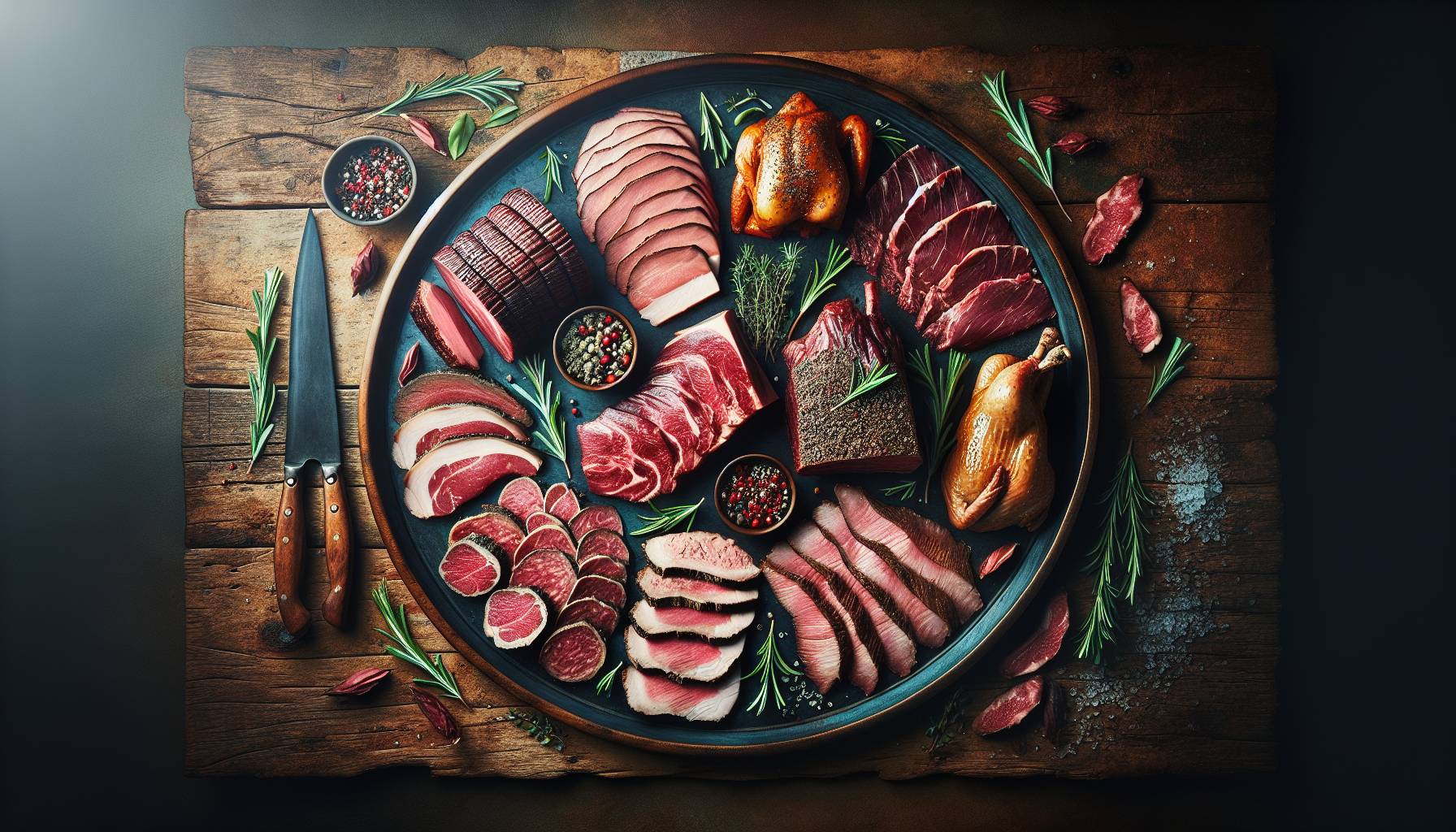Is the carnivore diet the solution you’ve been searching for regarding your oxalate issues? As you navigate the complexities of nutrition, you might find yourself grappling with this question. The carnivore diet, emphasizing meat and animal products while excluding plant-based foods, has gained attention in recent years. But does it truly hold merit for those dealing with oxalate concerns? Let’s dig into this topic together.
Understanding Oxalates
Before we get into the specifics of the carnivore diet, it’s crucial to understand what oxalates are. Oxalates, or oxalic acid, are naturally occurring substances found in many plant foods. While they have some beneficial properties, they can also cause health issues for certain individuals.
What are Oxalates?
Oxalates are organic compounds that can bind with calcium, forming calcium oxalate crystals, which are a common type of kidney stone. For some people, high levels of oxalate consumption can lead to a series of troubling symptoms and health challenges.
Oxalate Sensitivity
If you have oxalate sensitivity, consuming high-oxalate foods can lead to discomfort or even severe health issues. Symptoms can include kidney stones, joint pain, and digestive problems. It’s like every bite of food becomes a game of chance, especially if you don’t know how your body will respond.
The Fundamentals of the Carnivore Diet
So, what is the carnivore diet all about? This unique dietary approach is built on the premise of eating only animal products—think meat, fish, eggs, and some dairy. This creates a stark contrast to traditional diets that are often rich in plant-based foods.
A Meat-Only Mindset
On the carnivore diet, you essentially eliminate all plant foods. This means steering clear of fruits, vegetables, grains, nuts, and legumes. Advocates of the diet argue that this approach can lead to various health benefits, including weight loss, improved mental clarity, and increased energy levels.
The Rationale Behind the Diet
The primary rationale for the carnivore diet is that by removing plant foods, you also eliminate oxalate sources. This could be beneficial for anyone dealing with oxalate sensitivity, as it provides an opportunity to potentially alleviate the negative symptoms associated with oxalate consumption.

The Intersection of Carnivore Diet and Oxalate Issues
Now that you have a grasp on both oxalates and the carnivore diet, let’s specifically address how these two intersect. Could this meat-based diet provide a viable solution for those struggling with oxalate issues?
The Elimination of High-Oxalate Foods
The carnivore diet essentially removes the primary sources of dietary oxalates. Foods high in oxalates include spinach, sweet potatoes, beets, nuts, and chocolate. If you love these foods but they cause you trouble, going carnivore might feel like a relief. You’ll still have a variety of meats to enjoy, along with fish and dairy products, depending on how strictly you adhere to the diet.
Potential Health Benefits
For some individuals, switching to a carnivore diet could lead to a reduction in oxalate-related symptoms. By avoiding oxalate-rich foods, you could potentially lower your risk of kidney stones and reduce discomfort associated with other oxidative stress in the body.
| Potential Benefits | Possible Symptoms Alleviated |
|---|---|
| Decreased kidney stones | Joint pain |
| Reduced digestive issues | Abdominal discomfort |
| Improved energy levels | Overall oxalate-related fatigue |
Nutritional Considerations
While the carnivore diet might seem promising for oxalate issues, it’s essential to consider the nutritional implications. Is it really balanced enough for the long haul? Let’s break it down together.
Missing Nutrients
A significant concern surrounding the carnivore diet is the elimination of plant-based foods, which are often sources of essential nutrients. By cutting out fruits and vegetables, you may lack dietary fiber, vitamins C and K, and antioxidants.
Long-Term Sustainability
For many, adhering to a strictly meat-based diet may not be sustainable. You might find yourself craving variety, and the long-term effects of excluding plant foods are still largely unknown. It’s like living in a world devoid of color; while it may seem intriguing at first, the monotony can wear you down.
Finding Balance
If you’re considering the carnivore diet for oxalate issues, think about how you can maintain some level of balance. Some people adopt a modified version, including low-oxalate vegetables, to ensure they’re still getting a range of nutrients that are crucial for overall health.

Alternative Approaches to Managing Oxalate Issues
While the carnivore diet may appeal to some, it’s essential to recognize that there are other methods to handle oxalate sensitivity. You might be better served by considering various approaches.
Low-Oxalate Diets
One well-regarded strategy is to follow a low-oxalate diet. This involves consuming foods that are lower in oxalate content while still incorporating some plant-based foods. Many people find success with this balanced approach.
| Low-Oxalate Food Options | High-Oxalate Food Options |
|---|---|
| Meat | Spinach |
| Eggs | Nuts and nut butters |
| Fish | Beets |
| Dairy | Dark chocolate |
| Rice | Sweet potatoes |
Focus on Proper Hydration
Another viable method for managing oxalate issues is maintaining proper hydration. High fluid intake can help dilute urine and decrease the risk of kidney stone formation. You might find that increasing your daily water consumption offers significant benefits without radically changing what you eat.
Key Nutritional Support
Finally, incorporating nutrients like calcium and magnesium into your diet could also assist in managing oxalate levels. These minerals can help bind oxalates in the digestive tract, reducing their absorption and potential impact on your body.
Personal Experiences with the Carnivore Diet
To embody the concept of the carnivore diet further, let’s touch on real-life experiences. You might be curious if others’ stories resonate with your journey.
Case Studies
There are anecdotal reports from individuals who’ve switched to the carnivore diet out of desperation while seeking relief from oxalate-related issues. They often report feeling better, with fewer symptoms and more energy, which reinforces the notion that the elimination of high-oxalate foods can have positive effects.
Potential Drawbacks
However, not every story is a success tale. Some have struggled with nutritional deficiencies or found it challenging to sustain this type of eating. Weight changes, digestive adjustments, and the psychological impact of limiting food groups can also play significant roles.

Checking In with Health Professionals
As delicious as a diet of solely animal products may sound, it’s vital to maintain communication with healthcare providers throughout your dietary journey. Consulting a registered dietitian or a doctor can ensure you’re making the healthiest choices.
Getting Personalized Guidance
Health professionals can guide you in tailoring your approach based on your specific health concerns. They can help you assess the impact of the carnivore diet on your oxalate issues and monitor your overall nutritional health.
Regular Check-Ups
Regular check-ups are essential to assess the effectiveness of dietary changes. Blood tests, kidney function screenings, and even nutrient level evaluations can provide valuable insights into how well the diet works for you over time.
Final Thoughts: Is the Carnivore Diet Right for You?
So, is the carnivore diet the solution for your oxalate issues? The answer depends on your individual experience, nutritional needs, and health background.
You may discover that this approach alleviates your symptoms, or you might find more benefit in a balanced, low-oxalate diet that allows for more variety. Whatever path you choose, make sure it aligns with your health goals and lifestyle.
Embrace Your Journey
Finding the right diet can often feel like an uphill battle. By staying informed and flexible, you can navigate your way through dietary challenges. Keep listening to your body and adjust as necessary, and remember: the best dietary approach is one that you can adhere to while feeling satisfied and healthy.
Ultimately, stay curious and explore the options. You never know what combination of foods might create the perfect balance for your health journey.


